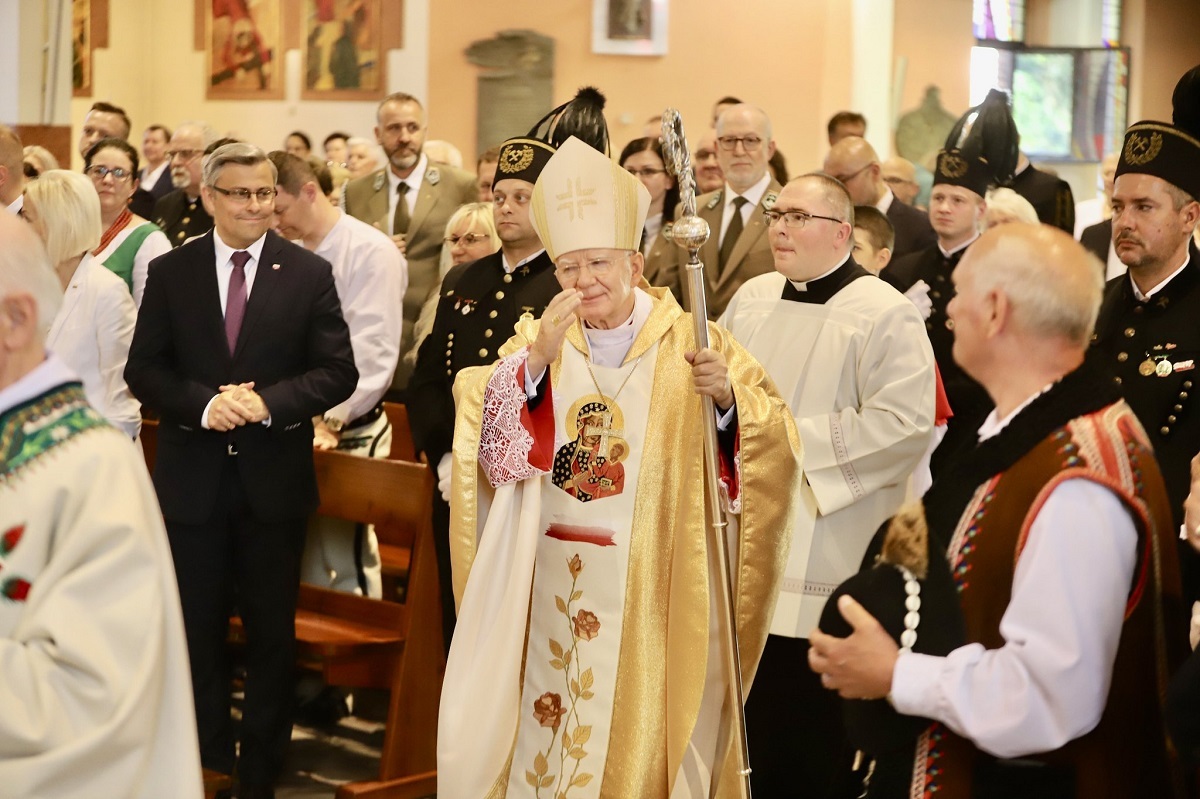Today we face the challenge of what Poland will be like, what values it will build, who will decide its future, whether its spiritual and political sovereignty will be guaranteed. This is a big challenge for us right now – said Archbishop Marek Jędraszewski, Metropolitan of Krakow, during Holy Mass. on the occasion of the National Day of the Silesian Uprising in the parish of pw. Hoisting of the Holy Cross in Katowice.
House of Cornelius and the rebirth of Poland
In his homily, the archbishop recalled that St. Paul asked the Corinthians to be generous with their hearts, setting them as an example to the Macedonian Christians. He stated that through prayer and almsgiving, the first universal Church was built, which crossed national borders. It was a symbolic event when St. Peter explained to the Jewish Christians about the conversion of Centurion Cornelius:
“If then God gives them the same gift as us who believe in the Lord Jesus Christ, how can I reject God?”
asked St. Peter.
The Metropolitan stated that this story symbolically depicts what happened in Poland after World War I. The homeland would return to the map of Europe and the interests of the Central Powers and the countries that made up the Entente clashed around it. The nation was divided by partitions, which prevented it from achieving spiritual unity. Therefore, it was necessary to build state structures from the very beginning and awaken the Polish flavor.
November 11, 1918 is the holiday when Poland was resurrected. In 1916, the illegal Central Civil Committee was created, which on November 11, 1918 revealed itself, changing its name to the People’s Council. On December 6, 1918, the Commissariat was formed, namely the executive body, whose members came from all over the country. The Archbishop recalled the importance of the Great Polish Uprising and pointed out that the Silesians had always felt that they belonged to Poland, as a Motherland. The sense of unity between Poland and Silesia was born thanks to the pilgrimage to Jasna Góra, the trip to Krakow and the trenches of World War I. The Metropolitan emphasized that after returning home from the war, the Wielkopolanie and Silesia were ready to march and fight for an independent Fatherland. He also noted that Poles from Greater Poland took part in the Silesian uprising, and that substantial support, as well as material, poured in from all over the country. The metropolitan read out an appeal to the peasants, in which they called on the support of the heroic Silesian people so that they would not suffer from hunger during the uprising. He also refers to the poem “Hi”, which was published in “Gwiazdka Cieszyńska”. The song speaks of how Poland should look at the rebels: “Upper Silesia, hello, hello! / You are a torch of Polish honor, / Where Polish honor should be carried / You walk forward with dignity.
“Today we face the challenge of what Poland will be like in the future”
Metropolitan said that Podhale also understands how important it is to raise the patriotic spirit. Upland amateur theater performed “Janosik” in Warsaw and Upper Silesia, during a plebiscite campaign. Solidarity demonstrations were also organized where money was raised for the rebels. On May 3, 1921, in Zakopane, the parish priest of the then Krupówki celebrated Holy Mass. for the motherland. On May 8, 1921, Fr. Jan Tobolski read Wojciech Korfanty’s “Manifesto”, calling for war against Germany. It was also decided that voluntary action should be supported by the creation of the Podhale Riflemen. 80 volunteers formed the Rebel Army’s 2nd Artillery Battery. In Zakopane on ul. Powstańców Śląskich, you can occasionally see obelisks and commemorative plaques explaining these events.
Today we thank the good God for the people who had so much strength and selfless patriotism to risk their lives and health so that the Republic of Poland will become an internally strong unitary state, built on Christian values. By giving thanks for these people, we remember them, and at the same time we realize that it’s not just about remembering events. Today we face the challenge of what Poland will be like, what values it will build, who will decide its future, whether its spiritual and political sovereignty will be guaranteed. This is the big challenge we face today
said the archbishop.

“Reader. Future teen idol. Falls down a lot. Amateur communicator. Incurable student.”


![Bogusław Wołoszański: “Achieving nuclear weapons would be the beginning of World War III” [WYWIAD]](https://storage.googleapis.com/bieszczady/rzeszow24/articles/image/877236c0-66fd-457a-9eb4-41792f9077ff)




